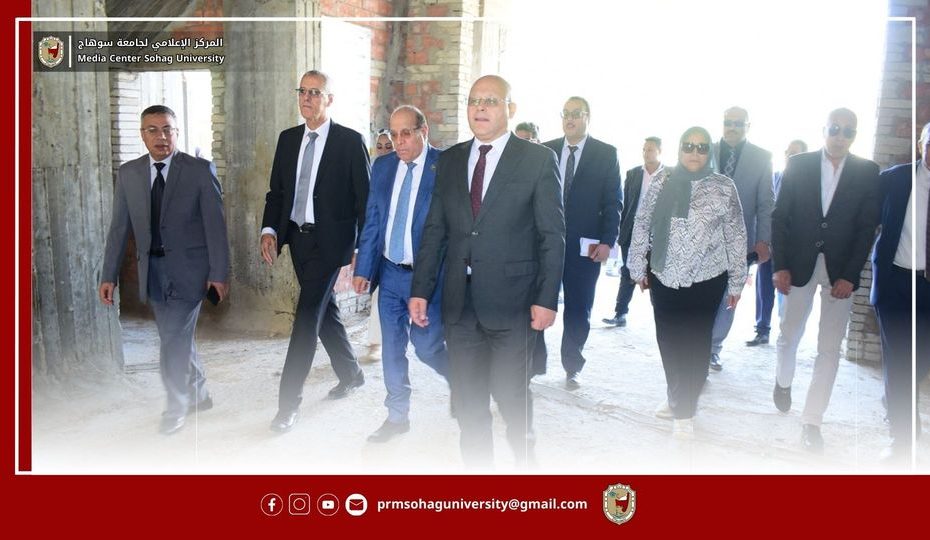Al-Nomany accompanies a Delegation from the Council of Private Universities to inspect the Construction site of Sohag National University Headquarters
Dr. Hassan Al-Noamany, President of Sohag University, accompanied the delegation of the Council of Private Universities, headed by Dr. Maher Mesbah, President of the Council, and Dr. Ibrahim Hilal, Professor of Electrical Power Systems at Faculty of Engineering, Ain Shams, and Dr. Hussein Ahmed, Lecturer of Architecture at Faculty of Engineering, Ain Shams university, to the site designated for the establishment of Sohag National University in Al-Kawthar neighborhood in the governorate, they were accompanied by Dr. Abdel Nasser Yassin, Vice President of the University for Education and Student Affairs, the accountant Ashraf Al-Qadi, Secretary-General of the University, and project officials.
During the tour, Dr. Hassan Al-Noamany stressed that the establishment of Sohag National University comes in line with Egypt’s Vision 2030, under the leadership of President Abdel Fattah El-Sisi, President of the Republic, and within the framework of the directives of the Ministry of Higher Education and the support of Dr. Ayman Ashour, Minister of Higher Education and Scientific Research, to provide integrated educational services for children.
He explained that the university seeks, through establishing a private university, to become a leader at the level of regional and international universities, by producing advanced educational programs that meet the needs of society and attract students from inside and outside Egypt.
It also hopes to provide distinguished scientific and research services that contribute to the graduation of competent youth cadres and cognitive, scientific, and professional experience, to play an effective role in community development and achieving its sustainable goals.
Al-Nomany pointed out that the establishment of a private university aims primarily to meet the needs of the increasing demand for university education in Upper Egypt without burdening the state budget, in addition to preparing specialized cadres in the fields of medicine, engineering, technology, media, and arts, and contributing to the human development of the governorates by creating new job opportunities for various segments of society, in addition to contributing to conducting applied scientific research related to the fields of industry and solving community problems.

